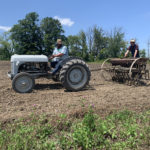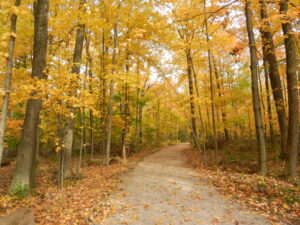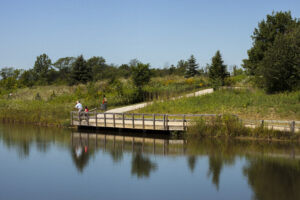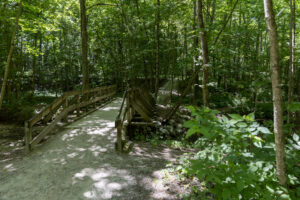By Gabe Ross, Farm Manager

After a Spring like 2019 who could’ve imagined that we would be hoping it would rain? The truth is, here at Gallant Farm, we haven’t had a drop of rain in about three weeks. The first cutting of hay was taken off late due to the rain and second cutting was thin due to lack of rain, the garden was only mediocre and the corn doesn’t look good at all. There were some highlights. Cucumbers, for example, did well and we put up two dozen quarts of pickles. The red raspberries yielded a fine crop and the lambs are growing well. Part of living history is experiencing the joys and the desperation of life on a farm. Just like our ancestors we, as well as all farmers, adapt and do the best we can.
In mid-August I planted a mix of buckwheat and oats as a cover crop along with some other cover crops, which received about an inch of rain, some of the last we had. While it was originally intended to be plowed into the soil in the Spring, I now plan on cutting some as green feed and some as a late cutting of hay. It has grown well when a lot of our other hay fields and pastures aren’t doing so well and we could sure use the extra feed.
Taking it off won’t allow it to be tilled in and create new organic matter but it will still accomplish a couple other aspects of cover cropping. Roots will be in the ground for winter to prevent erosion and the crop also suppressed weeds that otherwise would have grown there. Another benefit was providing a late season source of nectar for the local honeybee population. This is just one example of changing plans mid-season to roll with the punches of the weather, but many more exist.
The last field operations of the year will include spreading manure on hay fields and pastures and planting wheat. By spreading manure we add fertility to the soil as well as organic material that will give our soil more water holding capacity to get through these dry times. The wheat will be planted near the end of this month and hopefully be timed with a nice slow long rain. Wheat is an important part of the crop rotation that provides cover for winter, weed suppression, straw for bedding and of course the wheat itself.
Come out to Gallant Farm this fall and see how things are buttoned up at the end of an imperfect growing season. As you know when it comes to nature, and farming is part of nature, there really is no end, just new beginnings.






